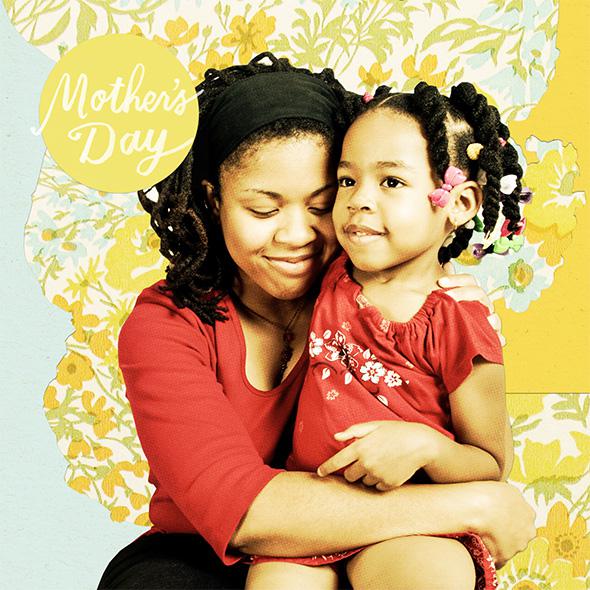“I’ve recently gotten pretty comfortable with the idea of potentially never having children,” my friend Seher posted on Facebook the other day, “Don’t want to force it and feel pressured by some clock, and don’t particularly want to be an old mom. Currently I’m in a grey area which is rapidly narrowing.” Seher is among several women I know trying to decide on the part they want to play when it comes to motherhood.
The role of mother or not-mother is such a deep dichotomy for women in our culture. A record number of women—nearly half of those ages 15-44—were child-free in 2014. Some of us know we aren’t interested in becoming mothers; others know we want it and are able to make it happen, one way or another. But many of us struggle in an in-between space. A very wise mentor of mine once said to me that if I’m ever faced with a decision and can only identify two choices—yes or no, this or that—I am missing something. There is always a third (and fourth and fifth) way. Aunties embody the third way. (And let’s be clear that “aunties” and “mothers” include transwomen, femmes, and gender nonconforming folks.)
My daughter, who is 10, is at the age where she still accepts my public affection. She asks me to stay in her room after I put her to bed so we can snuggle and talk, or I can sing jazz or Patty Griffin to her. But I can feel the taciturnity of adolescence emerging. I feel our connection being pulled taut as she stretches it to create more space between us. It’s a bittersweet feeling, and it causes me little bursts of panic. I have to fight the urge to smother her or demand her voice when she chooses silence.
Instead, I’ve put my discomfort into the work of shoring up the supports in her world, tightening the weave of her safety net. A couple of months ago, I called my friend Mariah; she has been my daughter’s auntie since she was in kindergarten and Mariah was her teacher. I asked her to have monthly dates with my daughter, so that as the distance grows between us, she and Mariah are getting closer. Mariah immediately agreed and their sleepovers have been full of doing hair, cooking healthy dinners, and eating croissants for breakfast.
We need to surface more stories of this third way to mother. My neighbor’s niece spends weekends and summers at her house. My friend Sabrina has played a primary role, with her mother, in raising her nephew since she was in her 20s. At a time when her peers were spending free time at happy hours, she was rushing off to do pickup at daycare. My friend Tracy recently became a single mother by adopting three girls, and aunties are providing regular childcare, outings, errand-running, and hugs. It’s not surprising to me that all of these families are black. We have deep traditions of raising our children collectively, inside and outside the familial confines of blood and law. With a history of parents being sold away, migrating for work, or taken by the prison system, it’s not surprising that we’ve adapted and created homes for our children however we can.
Aunties are the rule-breakers. When they come over to babysit, the fancy dishes come out, the kitchen becomes a playground, and screen time and bedtime extend. They go on adventures, take my kids to slightly inappropriate movies and shows, and they expose them to new music. They are also the culture-keepers who can share family stories and the histories of our people. They are the oracles who answer questions children don’t want to ask their parents (sex! drugs!) and share knowledge about subjects children didn’t know existed. They see children as their own people, which enables them to talk to kids as whole individuals and understand what they are truly capable of. Parents say, “Let me help” and “That’s not safe.” Aunties just say, “Yes!” —maybe without even lifting their eyes up from the book they’re reading. They expand children’s internal and external boundaries.
In my experience, the role of the involved auntie is often reserved for situations when parents are unavailable or stretched thin. But what could it mean for women—black and otherwise—if the role of auntie was a real choice we could make outside the realm of motherhood, but inside the realm of raising children? What would it mean for parents if we routinely brought aunties inside the tight circle of immediate family? What assumptions and boundaries would we have to let go of to allow for this third way?
I’m working on letting go of the idea that caring for my children is a burden, and recognize that their aunties see time with them as a gift. These women love me and want to help and support my family, but they have separate relationships with my kids and love them independently. The joy Sabrina expresses when she talks about raising her nephew resonates with the mom in me. She says that she loves how she’s been part of shaping her nephew’s life and helped him make sense of his experiences in a way that enable him to thrive.
This Mother’s Day, I’m going to make sure my children’s aunties know how much we value their presence in our lives, and I’m going to ask them for more: More rule-breaking, more listening, more love.
